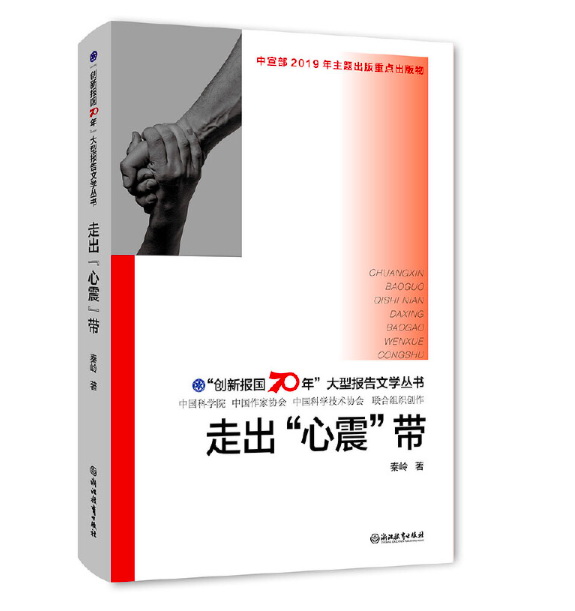Post-disaster psychological support matters

After Disaster: Out of the Psychological Shadow
“If I hadn’t received psychological assistance, I am afraid that the rest of my life would have been filled with those agonizing memories at the explosion site and I would not be able to live a normal life,” said a survivor of the huge explosions in Binhai New Area in Tianjin in 2015, who has suffered with post-traumatic stress disorder (PTSD).
After Disaster: Out of the Psychological Shadow is China’s first book that fully reflects and explores post-disaster psychological assistance in a literary form, to be specific, in the form of reportage. The writer Qin Ling introduces the knowledge of psychological assistance to the public in a readily comprehensible language style and, at the same time, portrays touching scenes involving professional therapists helping those in need to overcome psychological difficulties. Such a work can help raise people’s awareness of PTSD and psychological assistance. It also has practical significance when it comes to the panic caused by COVID-19.
Qin conducted a survey into areas stricken by earthquakes, explosions, fires and mine disasters, including Beichuan, Deyang, Zhouqu, Yancheng, Tianjin, Qinyuan and Datong. He also consulted numerous related materials and interviewed over 350 family members of victims and psychological workers and volunteers who have participated in post-disaster psychological assistance. Mental health knowledge, post-disaster psychological assistance processes, interviews and dialogues with experts, personal experiences of psychological workers and volunteers, and oral narratives of psychological assistance cases, can all be found in the book, a work with both literary and informational attributes.
The chapter “Effects of the Psychological Typhoon Eye” is particularly impressive. Psychology is an imported notion. Well-known psychological effects, such as the Primacy Effect, the broken windows theory and the Pygmalion effect, are all research findings from foreign sources. Despite this, the Psychological Typhoon Eye Effect is proposed by Li Shu et al., a research fellow from the Institute of Psychology at the Chinese Academy of Sciences. It describes the phenomenon of the lower level of concern felt by residents about safety and health when closer to the epicenter of a devastated area.
This effect can also be seen during the COVID-19 pandemic. The elderly are more vulnerable to the virus. Once infected, they have a higher probability of developing into serious cases or even death. Even so, a large proportion of the elderly group still thinks little of the virus and exhibit inadequate concern towards it. As a result, young people try hard to persuade the elderly to wear masks, reduce unnecessary outings, pay attention to their physical condition and cooperate with local epidemic prevention and control.
This article was edited and translated from China Reading Weekly.
edited by YANG LANLAN
